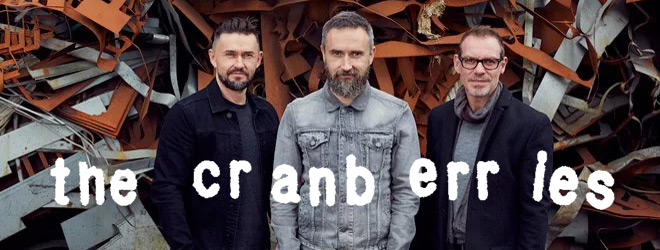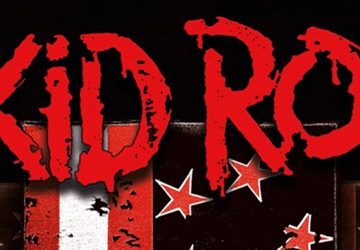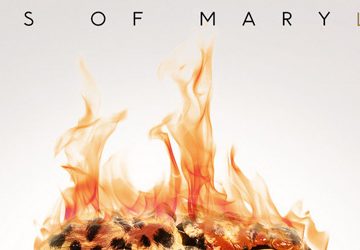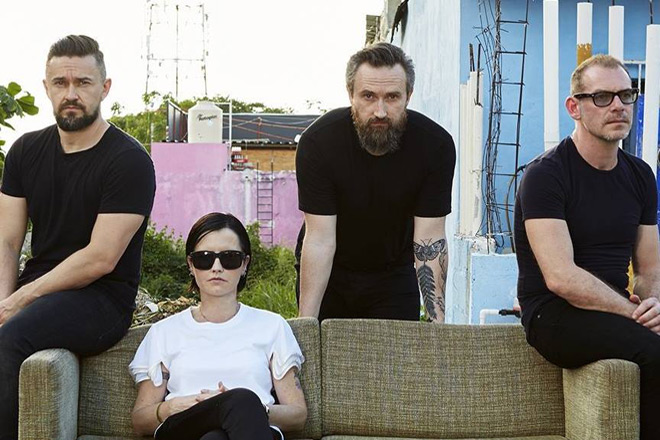
A terrible loss for friends, family, her devoted bandmates, and fans, most figured The Cranberries were all but done. Fortunately for everyone, the band was indeed in the process of writing/recording new music for another album prior to O’Riordan’s death. Left with the hard decision of whether or not to put the music out, inevitably they felt it best to honor their late vocalist with one final release.
Entitled In The End, the album has received an amazing response and marks the band’s first ever to be nominated for a Grammy. A bittersweet time for The Cranberries, founding Guitarist Noel Hogan recently sat down to talk about the history of The Cranberries, losing Dolores O’Riordan, the work behind their last album, plus a whole lot more.
Cryptic Rock – The Cranberries came together three decades ago. In that time the band would go on to major success with multi-platinum album sales, chart-topping singles, and international touring. First, briefly tell us, what has the journey been like?
Noel Hogan – To say amazing really doesn’t do it justice. We were four really young kids who liked a lot of English/Indie music in the ’80s. Then, through a few bands we all commonly liked, we formed this band trying to do our version of that; it was a hobby for us. We would rehearse on Sunday and Tuesday in Limerick where we grew up. Within a few years the songs we had written as kids everyone in the world knew and we were headlining massive tours. It all seemed a bit surreal.
It was great, it was amazing. Obviously when you start a band you kind of dream these things would happen, but you don’t think they will. Here we are 30 years later and it has kind of left a legacy at this point. For us it’s still, you kind of pinch yourself a little to think that’s you, that’s your life, you were involved in that; it is almost as like it happened to somebody else, it’s just you know a lot about it. It’s something I guess we never expected and never fully got used to, but have had just an amazing ride with the whole thing.
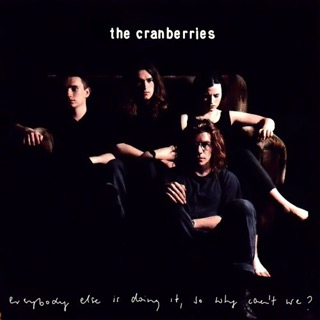
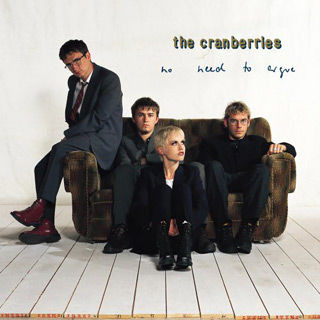
Cryptic Rock – It is truly amazing. One thing that has always stood out for the band has been the blend of beautiful melodies with heavier guitars. Was that balance always important for you when writing music?
Noel Hogan – Yeah, it really was. The way I write the music, because I can’t sing and I don’t write lyrics, was the guitar melodies and writing that side of it was the music side of it. Because I was a guitar player you would end up kind of making things a bit heavy and kind of get that vibe going on. Then Dolores would have these almost Pop-like melodies over this with very sweet lyrics. You would have this bizarre music of the likeness of that and the heaviness of the music – it just seemed to kind of click with people.
It wasn’t anything we set out, it wasn’t preconceived we were going to do it this way. We genuinely wrote songs we liked, and we were just very lucky a lot of people liked it, as well. We didn’t realize it at the time, but a lot of those earlier songs have really stood the test of time. That says a lot for not knowing what you’re doing really.
Cryptic Rock – They certainly have stood the test of time. Let’s look back a little bit more. Dolores O’Riordan was not originally the lead voice of the band when you began. Joining the band a year later, what was it like for you recruiting a new lead singer. Moreover, what lead to selecting Dolores as the voice of The Cranberries?
Noel Hogan – Myself and the two other boys in the bands all grew up together. A guy who lived near us was in another band, he sang with us for a while because he wanted to step out of that band and do something a bit different. A good thing about meeting Niall Quinn was he had experience in a band, and he kind of showed us how songs were structured and written. We actually had no idea: we bought instruments and started a band; we were really learning as we were going. Niall left, and a good 6-7 months went by where we were just an instrumental band. We had taken over: I had all these ideas for songs and there were songs that developed into these big instrumentals.
It was actually through Niall whose girlfriend at the time knew Dolores. I bumped into Niall one day and he said, “My girlfriend knows this girl who looking for a band, but they have to do originals; she doesn’t want to be in a cover band.” I said, “Yup, we’re the people.” She came in that very first day, sang a few songs – a Sinéad O’Connor song and a song she had written herself. We had played some of the instrumental stuff and straight away she said, “I think I can work with this.”
Of course when she sang we were all going, “Okay, how come she’s not already in a band?” We couldn’t believe it! It kicked from there. I gave her a cassette with a very basic guitar version of “Linger” on it. She took it away, came back two days later, and the version of “Linger” everybody knows was born that week and it never really changed from that moment on.
Cryptic Rock – Wow, and as they say the rest is history. The band went on to a long career and released exceptional music. Let’s look back at the albums: there was obviously progression from album to album. What was the progression like for the band and deciding what direction you wanted to go?
Noel Hogan – The great thing about having success very early on is that it allows you to go do your tours, you can relax, and you can make a living from the thing and focus on doing it. The down side is you put a lot of pressure on yourself to try and change it slightly every time and become better. Hopefully you are becoming a better musician anyway, but there is that pressure where you have three, four, five hits, now you want the sixth and seventh hits. That can be a mixed kind of bag. You can stay awake at night worried about that kind of thing. It can lead to all kinds of issues, and it did. Dolores and I, being the writers, found that pressure got a bit too much. They are not fun times but we got clever, took some time out, regrouped, came back to it again, and started writing the next album.
You want it to be a Cranberries album, but you don’t want it to be the same as the last one. You are trying it far, but not too far where people would go, “What the hell is this all about?” I think if you listen to the albums back to back you do hear that progression, but it’s never a massive jump where we did one kind of music and suddenly came out with a Dance album or something. It was always The Cranberries; you would know in the opening chords of any of our songs that it’s us. Hopefully you try and craft the songwriting a bit more. Obviously playing all the time, especially since we toured constantly, you do get tighter as a band as well. It gets to the point where you can go into rehearsals and not even have to look at each other, you just know what people are going to do before they start doing it.
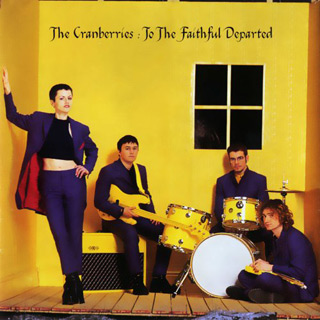
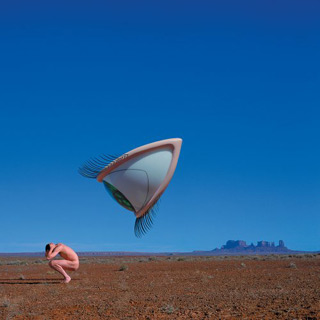
Cryptic Rock – The results were always great. You mentioned taking some time off and a break. There was a period of time where the band was not actively touring or releasing new music. When the band regrouped around 2009 for a North American and European tour followed by an album release in 2012, what was it like getting back into the swing of things as a band?
Noel Hogan – It was great. I think it was six-seven years at that point and we had never broken up; we had just gotten to the point where we felt we had done everything we could. It became really like a job, but a job nobody wanted to go to. There was this mutual respect for each other where we said, “We need to get away from this awhile.” We all went off and lived our lives, had kids, etc.
After a long time you start to think that part of my life is probably over. Amazingly when you do get back together…I remember the first day myself and the two boys knew we were going to do a tour, there was a demand for it. We got together in a place we had here in Limerick, and we were just going to rehearse and see how it went before we met Dolores; just to have the music side of it together. It was weird: after two hours it was like we had never taken a moment off. We playing songs we had not played in six-seven years, and somewhere in the back of your brain they were still there. They were rusty, but after a couple of days we were just as tight as we had been. That’s amazing how that lives with you even though it’s not something you think about every day and you had almost forgotten about that part of yourself.
Then Dolores came on and we had the four of us in the room together and it felt like we had no time off. We were actually enjoying it again like we were in the early days. The minute you start doing a tour and you’re back on the stage again, get over the nerves of the first night in particular, you start to enjoy it. Because of that you are able to go back and write. That wasn’t even our plan at that point: it was just to tour and see how it went. That want in you to write again comes and suddenly without really thinking about it you have another album.
Cryptic Rock – Yes, and speaking of which, three albums followed that return. Which leads us to the most recent, In The End was released in April of this year. This album comes with a heavy heart because it is the final with Dolores. There is obviously a level of grieving involved with someone who is your friend and bandmate for so long. Was it a challenge to decide to put this record out?
Noel Hogan – Yeah, it is one of the hardest things we had done. Dolores and I had started the June before that. She passed away in January of 2018, so we had kind of written all those songs and worked on that; the plan was to go around March or April to start the album. I had everything on this hard drive and you look at it everyday wondering should I open it up? Should I just forget about it? What should I do? Eventually when you get the guts up to start to go through it all and you realize how strong it is, then you start to go – what do we do now? Do we pursue this or do we leave it be? You second guess yourself and you don’t know what the right thing to do is.
It was truly a group effort where I got the demos together the best I could, sent them to the boys, and we sent them to Stephen Street who produced the bulk of our albums. The four of us spoke a lot, kind of had different ideas, and Stephen’s idea was you should do it now and not let time go by. Now looking back it feels as if that was our way of dealing with the whole thing, like therapy in some ways.
It was hard recording it, particularly the first few days. You do zone into that thing where you say, “I want to make this the best I can.” We all got into that headspace and we are really proud of the album now. We were worried about releasing it, because you don’t know how people would take to it given the circumstances; you hope people would get what you were trying to do. Dolores was really so excited about these songs. Then something like this nomination we received does make you think we did the right thing, because this could have been on a hard-drive sitting on a shelf here forever with nobody hearing it. I think we feel we did the right thing.


Cryptic Rock – The songs are fantastic. You did do the right thing, because this album gives fans time for closure: the music of The Cranberries is very personal for many fans, this gives them a chance to grieve and take these songs in.
Noel Hogan – That is what we found. We were worried, as I said, and suddenly you meet fans when we went around doing the promo and people left messages online. It hit the nerve we hoped it would, like a gift almost to them than anything that Dolores left this there. I think because the album is so strong, it got the point across. Whereas if it had been an album where we were thinking these songs aren’t that great, it probably wouldn’t have the effect it had; it would really look like you were releasing an album for the sake of it.
We thought long and hard are these songs strong enough. We genuinely believed at the time of recording it that it was up there with our best albums. I still stand by that now. I’ve been working on this album since June of 2017, a pretty long time. I really am proud of it!
Cryptic Rock – As you should be. You mentioned about being nominated for a Grammy. Well deserved and long overdue, you will be nominated for a Grammy in January 2020. Shockingly this is the first time The Cranberries have been nominated for a Grammy. How surprised are you for this nomination after all this time?
Noel Hogan – (Laughs) It’s really shocking, I can’t explain how shocking. For 30 years we have been doing this and it was not something that has ever really been on our radar. You are aware of the Grammys, but even when the band in the ’90s were at the height of everything, it never really came up in the conversation. We were doing the promo of this album in February-March, it started to come up when we were doing different interviews at radio stations. You still don’t think about it; we had never been nominated before, and what are the chances it is going to happen now at the very end of it all? Then surprise, surprise, we get this call out the blue. I genuinely think we were probably more surprised than anybody else.

It does validate that the decisions we made to get to this point of this album is you did the right thing to do it. I guess in a small way, because things have quieted down in the past few months, you almost felt like the album came out, did well, and we were starting to move on, and suddenly this brings it back up. It’s nice, it really feels good.
Cryptic Rock – Let us hope you take home an award come January, the band deserves it! Beyond the music of The Cranberries, you have put out some fantastic music videos – “Zombie,” “Animal Instinct,” etc. These are very thoughtful music videos. What was the creative process like behind all these music videos?
Noel Hogan – We were really lucky that we met some great directors over the years. On an album you would find somebody and then probably do 2 or 3 videos for that album with them to keep it coherent. That always seemed to work for us. We were lucky that we made videos at a time where record companies were willing to give a bit more of a budget than I think they are now. You would try and kind of push it as far as you could. In fairness, Dolores was great working with the directors, particularly because she had written the lyrics. She would explain, “This is the way I imagine this song, this is what the song is all about,” and made sure the videos didn’t drift away from that.
Again, it was something we didn’t think we were going to make some great videos. They were just kind of an evil necessity – at one time you felt a video and you would kind of throw your eyes up. Then when you see the finished result, a lot of the time we were really happy with it. You have to trust the directors you work with, because they have a vision and they are trying to get it across. When you are doing stuff with green screen it can be hard to imagine. Most of the time we’ve been really happy with them.
